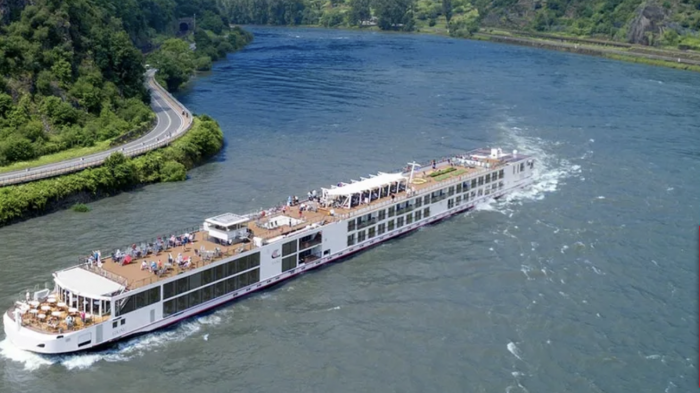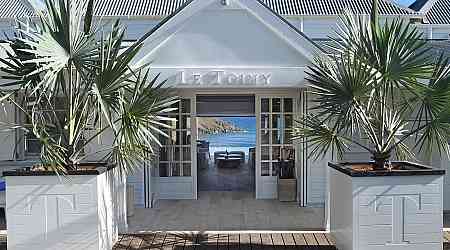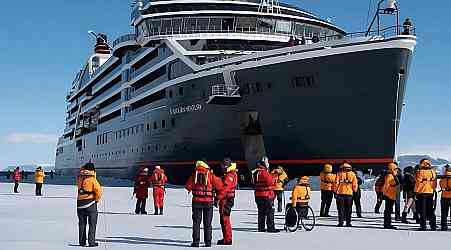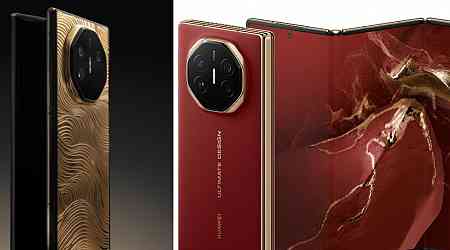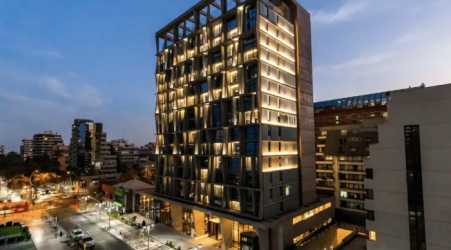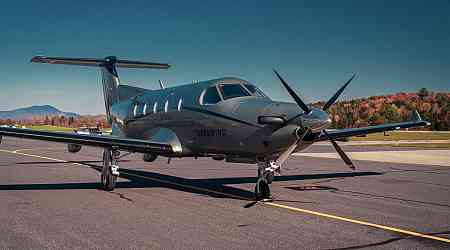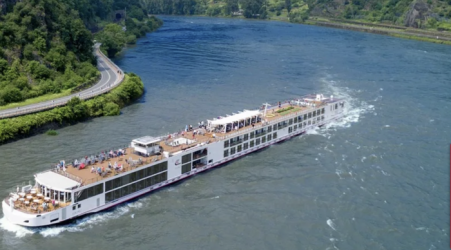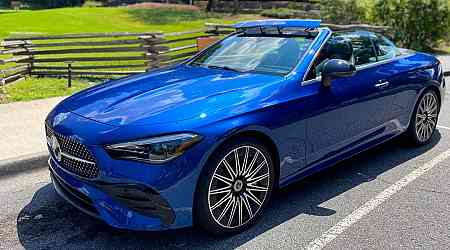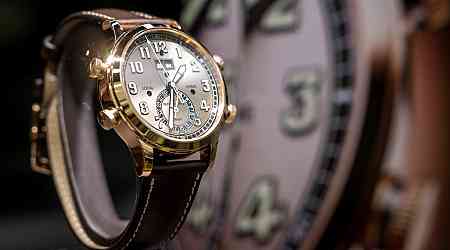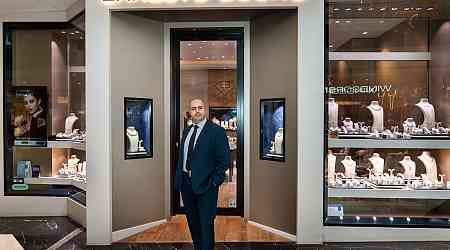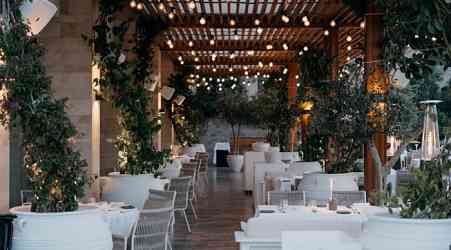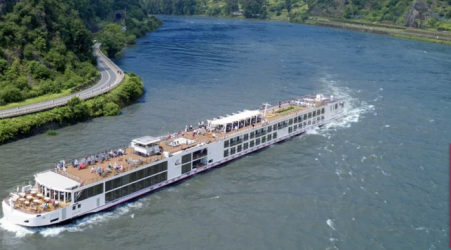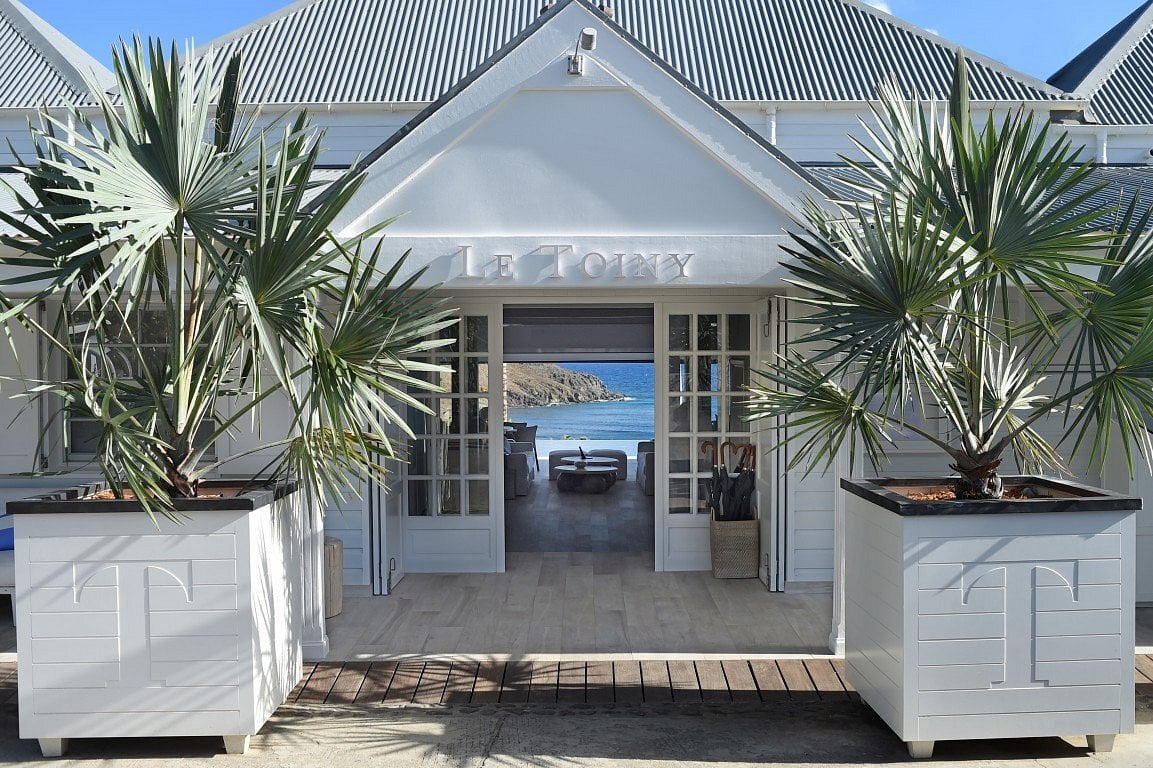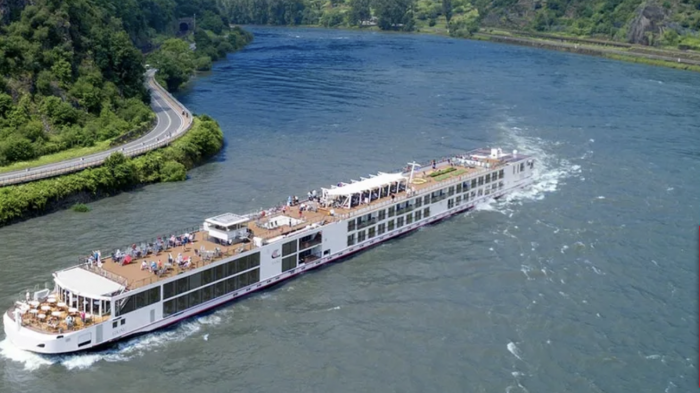
Cruising along the Danube River on Viking provides passengers with spectacular architectural views of ancient European cities. The ever-changing scenery along the banks of the calm waterways soothes one's soul and arouses a sense of adventure.
In 1997, Torstein Hagen, CEO of Viking Cruises, acquired four ships in Russia and founded the cruise line. Now with a fleet of almost 100 river and ocean ships, travelers can see the world in luxury and comfort on Viking. The elegant Scandinavian design longships can stretch to 443 feet in length.
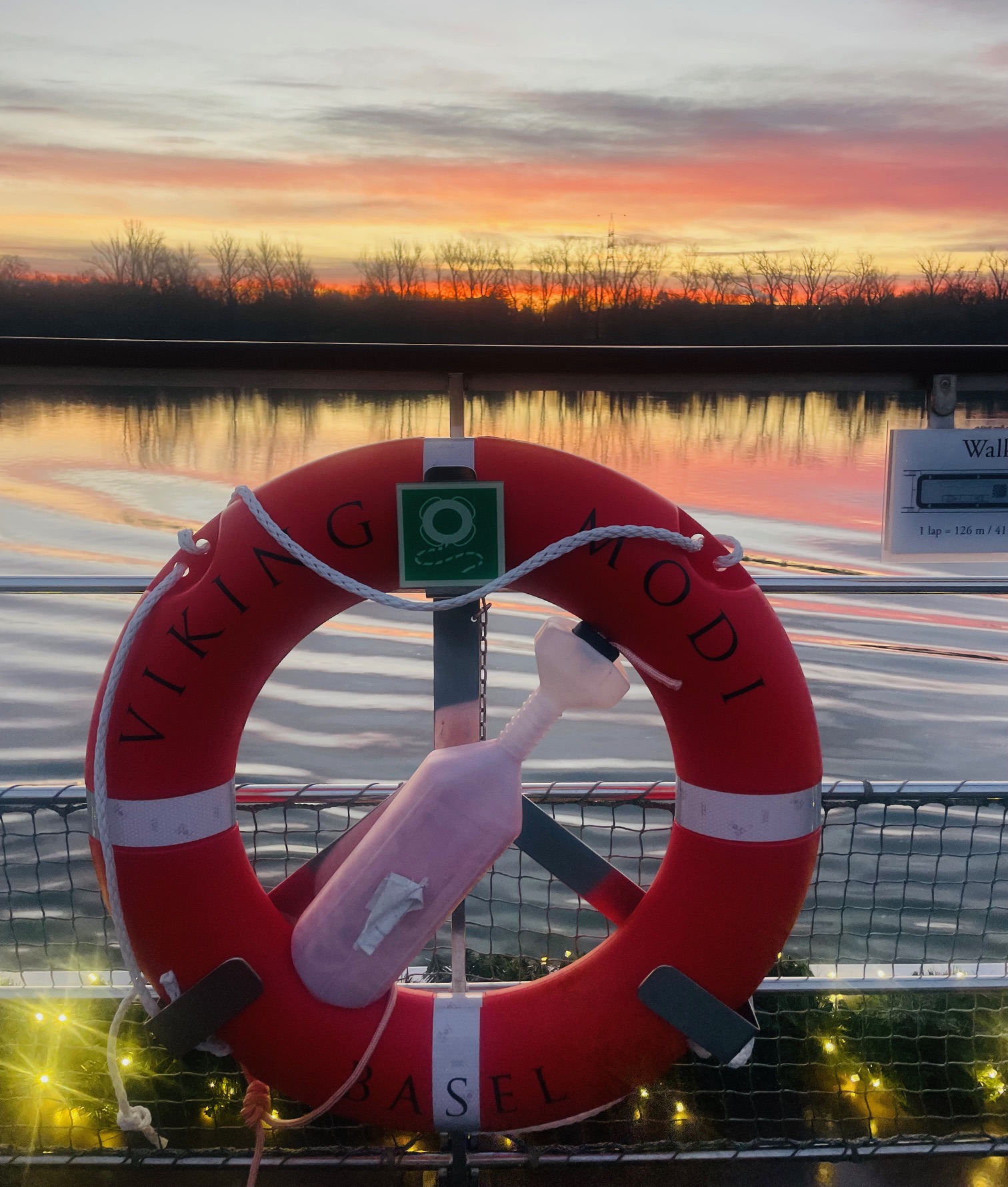
VIKING MODI
Sailing on the European Viking river cruise ship named Viking Modi, it's one of the most enjoyable travel experiences for passengers. Named after Modi, the son of Thor, he was known for his strength as the most powerful Norse god.
Built in 2015, this stylish ship design offers 95 staterooms to accommodate up to 190 guests and a crew of 53. Passengers unpack just once, and get to enjoy complimentary daily excursions, three delicious meals a day and evening entertainment before and after dinner.
Environmentally considerate features include solar panels, reusable water bottles, and energy-efficient hybrid engines for a remarkably quieter and smoother ride.
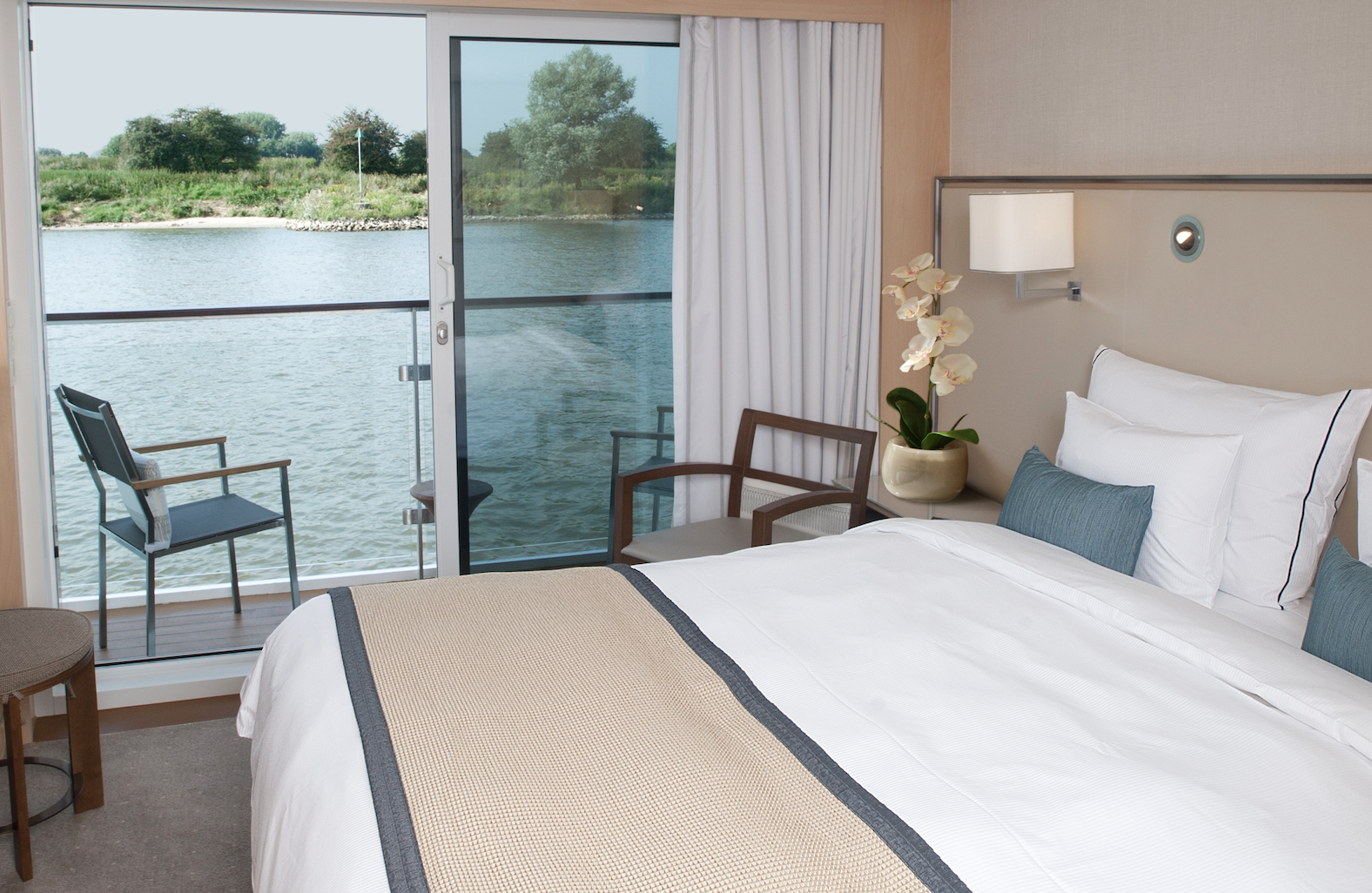
STATELY STATEROOMS
Most of the staterooms are around 205 square feet, including a private veranda balcony. The floor-to-ceiling glass door opens to allow the fresh air inside. There is a small table and two chairs on the balcony for guests to sit, relax and take in the views. Most rooms have a Queen size bed fitted with luxury linens and soft comforter. They can also be arranged into a two twin-bed configuration.
Inside the private bathroom is a glass-enclosed shower and premium Freyja toiletries. Luxury features include heated bathroom flooring and an anti-fog mirror. The closets have plenty of storage, plus plush robes and slippers upon request. Other convenient features include a safe for valuables, mini refrigerator, and plenty of storage space in the drawers.
Other stateroom categories include a standard room with small windows, a French Balcony wall of windows, and two-room Explorer Suites at the back of the ship with a private wraparound veranda plus a French balcony in the bedroom.
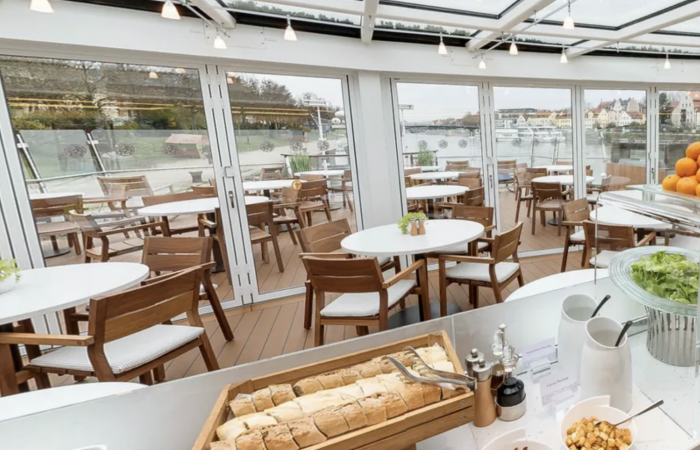
CULINARY VENUES
There are two dining areas on the Viking Modi, plus a spacious indoor and outdoor lounge and bar. A favorite spot to enjoy a light breakfast is Aquavit Terrace in the morning, and also during lunch after exploring a port. This dining area is smaller and more intimate with walls of glass windows to watch the world go by.
In the evening, Aquavit's lights dim for a more romantic ambiance for couples at a table for two, and for those seeking a quieter dinner with new friends onboard. The attentive onboard staff pour wine throughout each delicious course.
Menus are curated for every dietary need. One side of the menu offers daily changing delicacies inspired by the region, while the other side provides fan favorite culinary delights offered daily throughout the cruise. Highlights include German Night with German beer, pretzels, brats and red cabbage. There is a new soup and salad of the day during lunch, and a different soup and salad during dinner. Vegetarian dishes are provided, as well as gluten-free items.
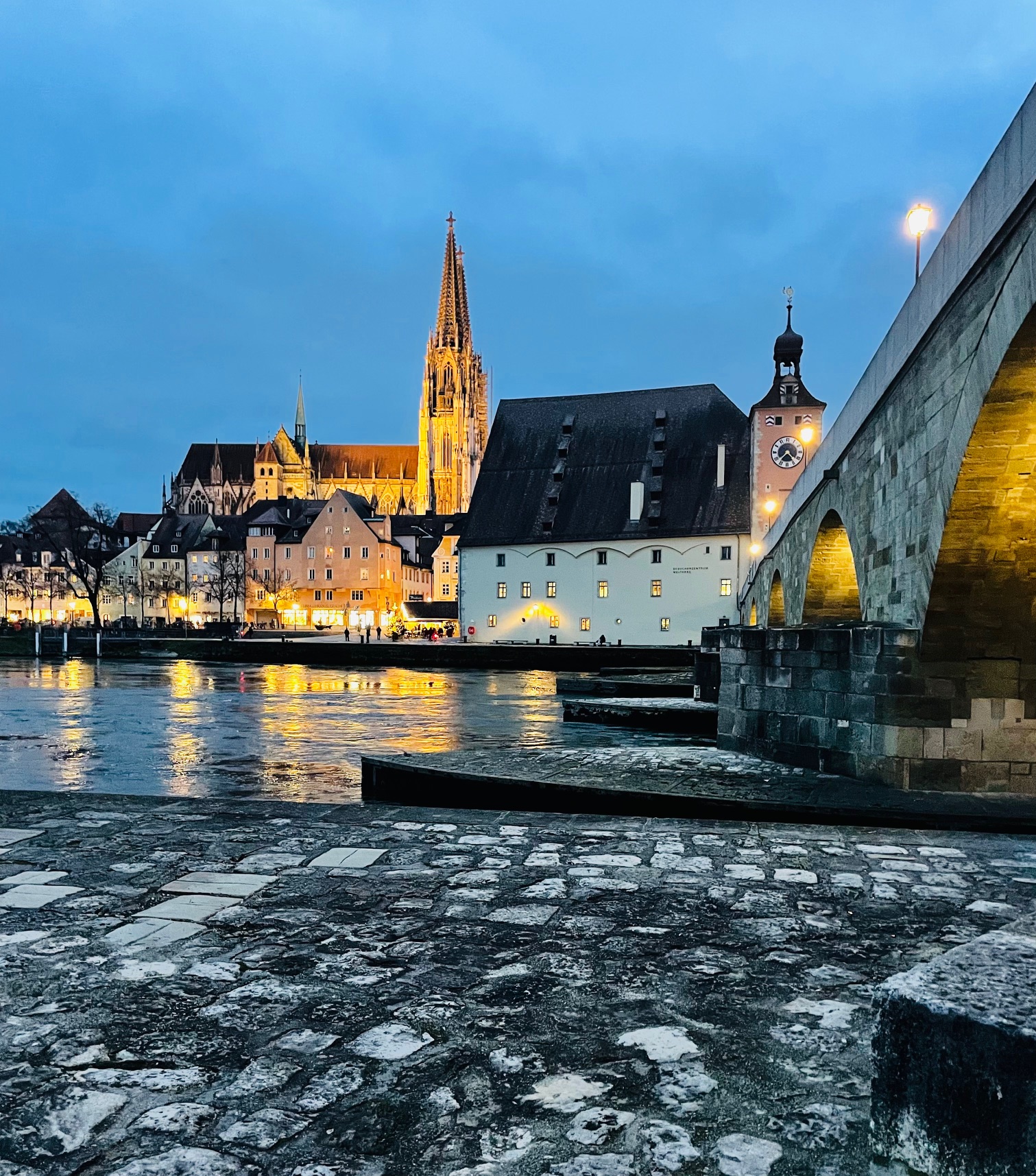
PORT HIGHLIGHTS
Viking river cruise ships have a large presence on the Danube. At some ports there are three to four Viking ships docked or cruising on the river to a new destination.
Some Viking river cruises start in the picturesque city of Regensburg, Germany and sail to Budapest, Hungary, with stops in Passau, Krems and Vienna, Austria. The Danube waterway is Europe's longest river, after the Volga. It's around 1,775 miles long and flows through ten countries and four Central European capitals. To reach these cities, the captain of the ship has to enter 14 different lock chambers. This is another exciting aspect of river cruising. Passengers go out on their balcony or up on the top open air deck to watch the fascinating process of water lowering as the sluices drain in the narrow passageway for the gate to open. Then the water raises to the top gates so they will open and the ship exits.
There is at least one complimentary walking or bus excursion per day, per port. Passengers are arranged into groups of 25 people or less to take in the sights, sounds, history and flavors of a city. On each excursion, passengers are encouraged to bring the small black box from their stateroom attached to a lanyard. An earpiece allows guests to follow the local guide's stories about UNESCO sites, churches, museums and other notable attractions filled with wonder of each port.
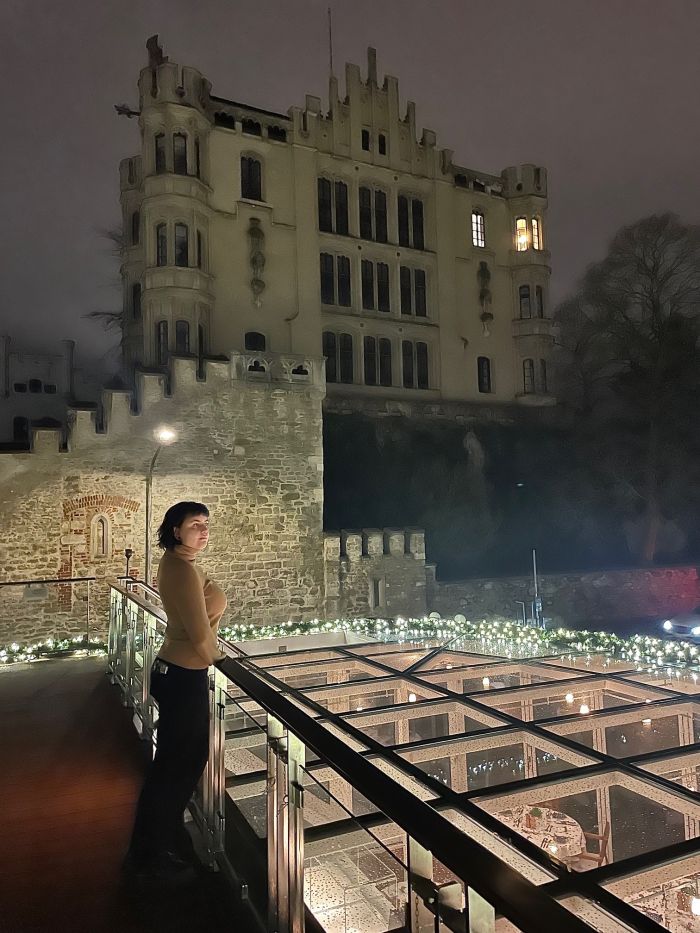
PICTURESQUE REGENSBURG
Known as Germany's oldest city along the Danube, Regensburg is a UNESCO Heritage Site. One of the most architecturally striking landmarks of the city is St. Peter’s Cathedral. It is considered Bavaria’s best Gothic architectural work.
The historic city displays relics of walls built in 179 AD by Romans. There is a fort built from large stones and an underground with large catacombs. Romans first called the people here Barbarians, but later this town was filled with noble people and priests. They lived lavishly due to the salt trade industry along the river.
Thankfully the city escaped major damage during World War II. There was a large Jewish population living and hiding in the catacombs, so Americans didn’t drop bombs. Many lives were saved and the beautiful architecture stayed intact.
Other highlights include crossing over the 12th century Old Stone Bridge. Built in 1135, this is a masterpiece of medieval engineering with its 16 arches. The arches are just the right size for river cruise ships to maneuver through.
Near when the ship docks is King Ludwig II's castle that he had built for visiting guests. This is one of the many castles and palaces the king built during his reign. Others include the fairytale Neuschwanstein Castle and Linderhof Palace.
The modern museum next to the Danube has an enormous lion with a stein of beer in one paw. This is a symbol of Bavarian life and Oktoberfest. In Medieval times, people couldn’t drink water, so they drank beer. It was healthier and safer for them to drink. This lion was at the welcome hall in Munich until Covid. Beer gardens were closed for three years, so this mascot was transferred to the House of Bavarian History Museum in Regensburg. Oktoberfest begins during the last week in September to the first two weeks in October.
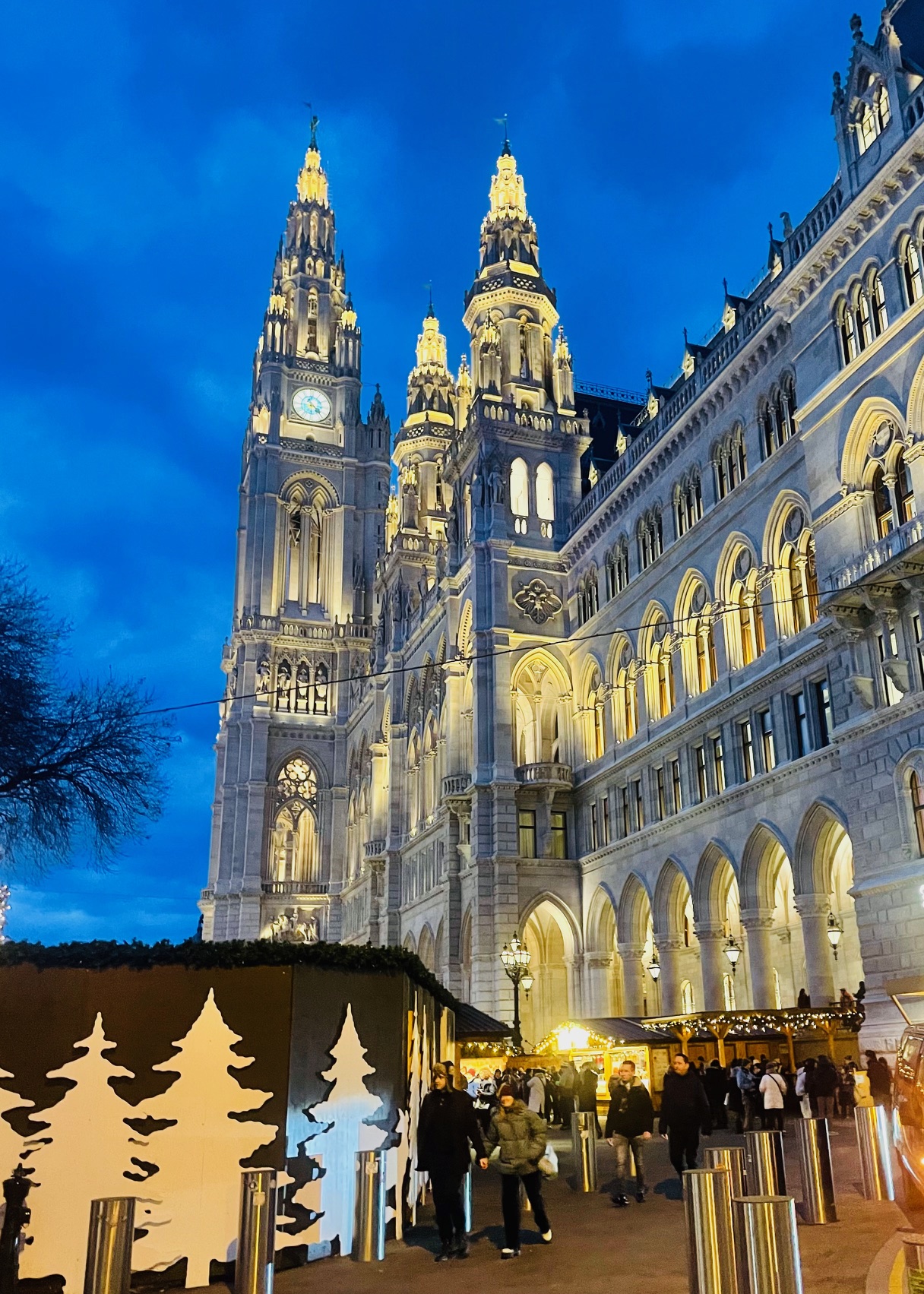
STUNNING VIENNA
One of the most romantic cities in the world, Vienna is the capital city of Austria. Horse carriages transport visitors throughout the renowned 'City of Waltzes' also known as the center of classical music. Composers Mozart and Strauss were inspired to create their finest music in the city.
Vienna is an elegant city with graceful architecture, wide boulevards, spacious parks and a luxury shopping district. Untouched by the wars, throughout the city there are some of the finest examples of Baroque, neo-Renaissance, and Gothic-Romanesque buildings, such as the Vienna State Opera House and Hofburg Palace.
The Viennese enjoy spending time sitting in cafes with cups of steaming coffee and a plate of the city's favorite Sachertorte dessert.
Viking shore excursions are available to guests for an extra fee. In Vienna, guests can attend a Mozart and Strauss musical concert, participate in a Heurigen culinary experience at a local vineyard, and have a behind-the-scenes tour of the Spanish Riding School to see the prized Lipizzaner Stallions.
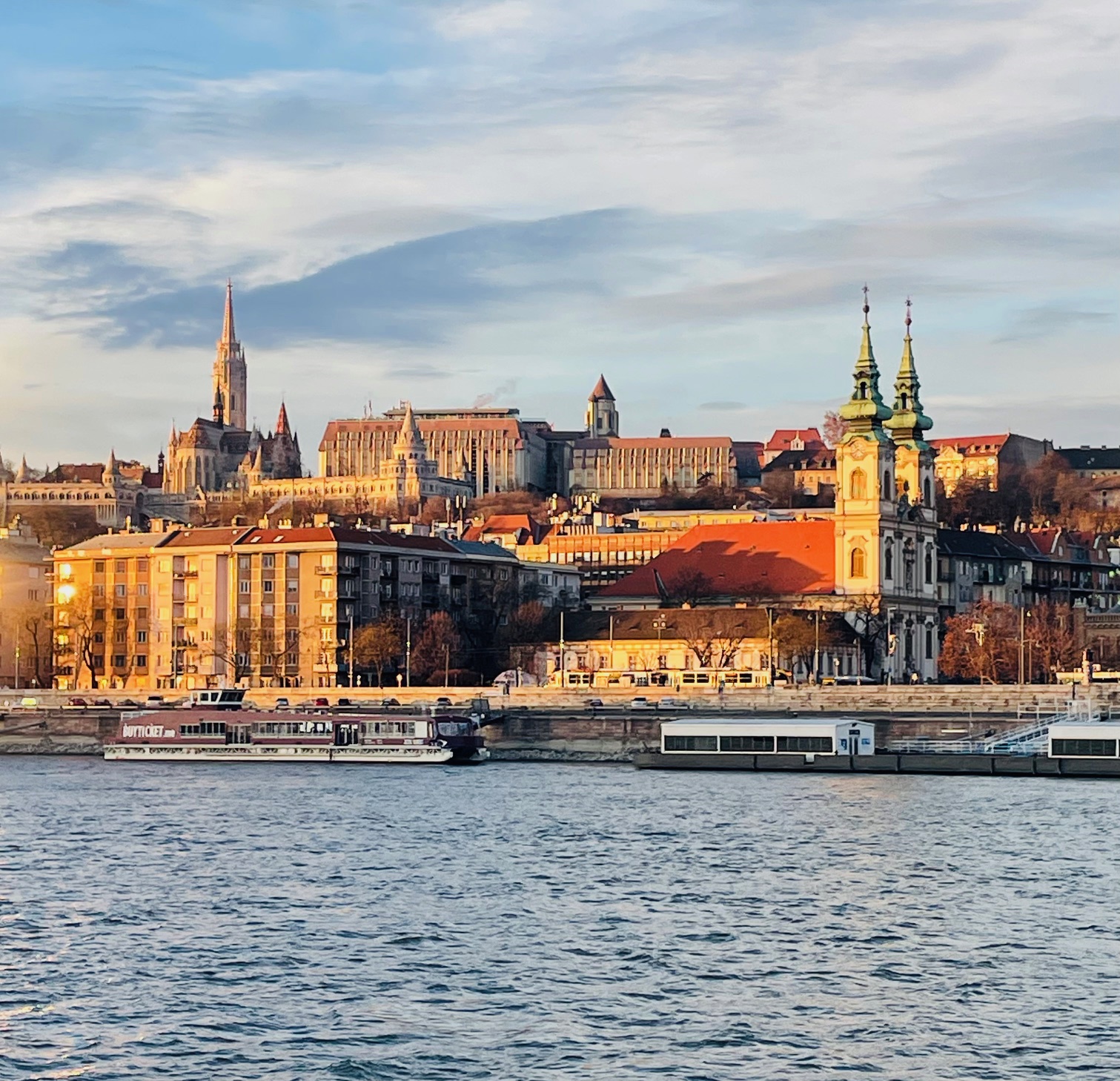
DAZZLING DANUBE BEND
Take in the natural beauty of the fabled “Blue Danube” as you pass through the Danube Bend, considered one of the most beautiful sections of the river. Cruising this 40-mile stretch through northern Hungary, you will see bucolic farmland and an ancient castle that once served as hunting grounds for royals and visiting dignitaries. As you sail the passage between the Börzsöny and Pilis Ranges, you will marvel at the steep hills draped with towering forests. Majestic church domes along the waterway heighten the viewing experience.
BREATHTAKING BUDAPEST
The city of Budapest provides riverside beauty and a vibrant cultural scene along the banks of the Danube. The traditional hillside Buda is on one side of the river and a more modern Pest is on the other side. As one of Europe's most spectacular Hungarian cities, the Chain Bridge was once the longest bridge in Europe. It's made with chain links instead of cables and is a dramatic centerpiece uniting the western and eastern parts of Buda and Pest.
The eye-catching gothic-style Matthias Church and stunning art nouveau buildings are all visible from the ship. A morning excursion is by bus to take passengers on a city tour, before leaving some time to explore the 13th century Castle District. Up on a hill, this residential area has been expanded to its current baroque splendor and once was home to Hungary's kings for almost 700 years.
Staying overnight, passengers have the opportunity to see the shimmering lights of the Parliament building in the evening and walk to the eternal flames representing the 1956 Hungarian uprising against Soviet rule, and the Monument of National Togetherness.
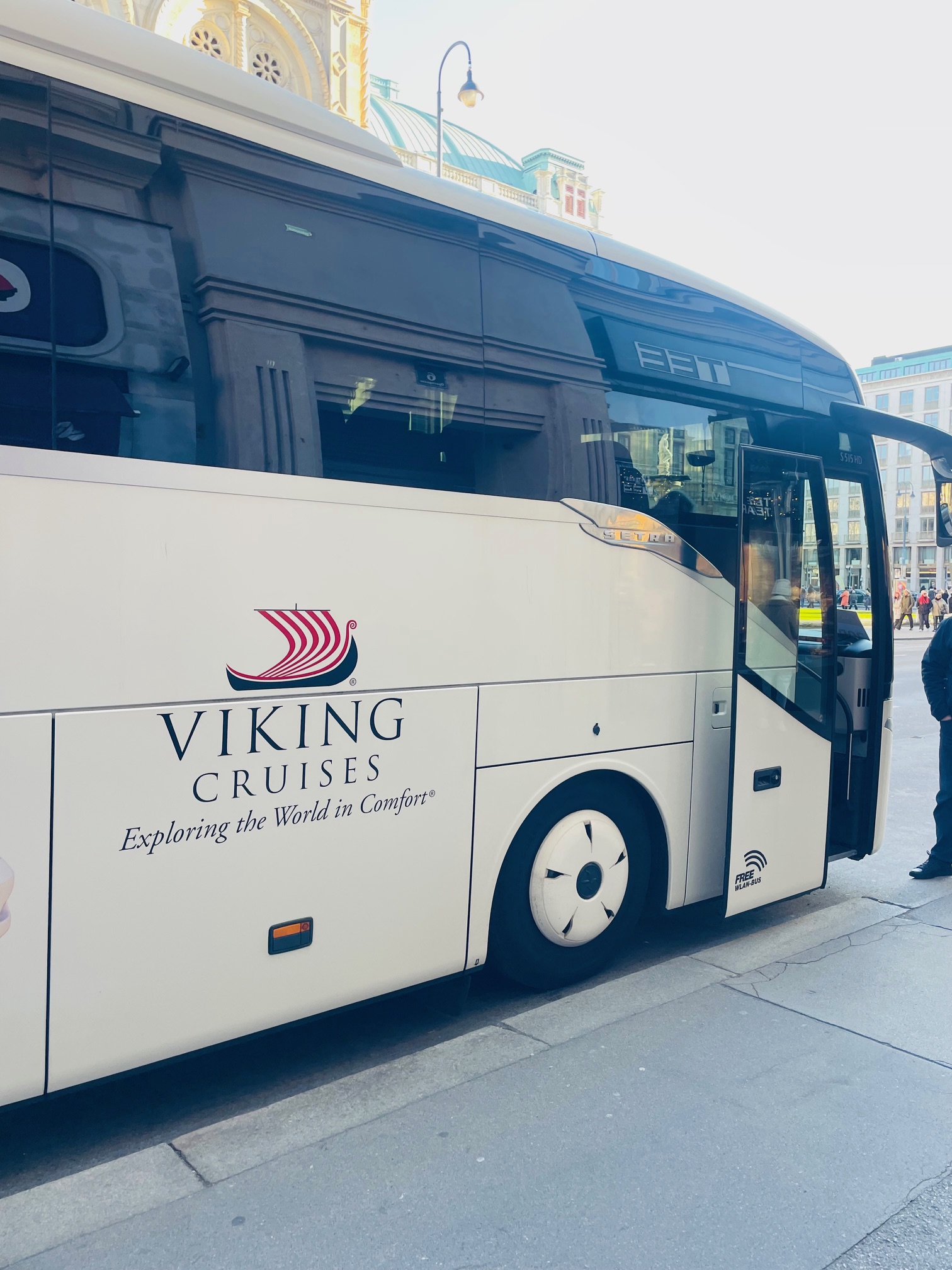
CRUISE VIKING
European river voyages range in length from 8 to 23 days, with itineraries featuring Europe’s Rhine, Danube, Seine, Rhône, Douro, Moselle, Elbe, Dordogne, Garonne and Gironde Rivers. Viking has their own motorcoaches to take passengers to some of the most fascinating sights near each port.
Viking also offers voyages on Egypt’s Nile River, Southeast Asia’s Mekong River and now the Mississippi River.
Choose Viking for your next 2025 cruise vacation. Besides offering a complimentary shore excursion in every port of call, the ship provides free wi-fi, and complimentary beer, wine and soft drinks during lunch and dinner. There are coffee, teas, water and fresh baked treats offered 24-hours a day at a refreshment station.
Evenings are filled with live music, enrichment lectures and like-minded travelers eager to explore the world.
Passengers who select Viking Air will receive complimentary ground transfers to the ship and back to the airport to enhance the ease of traveling internationally.


















